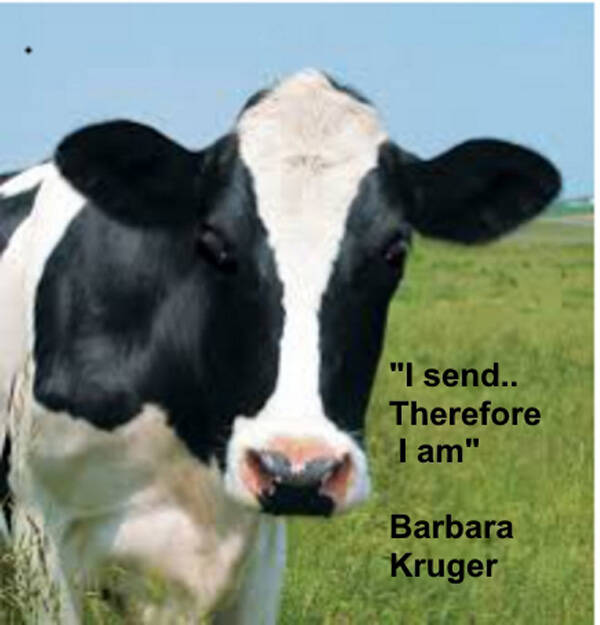Spend Less, Have More

“You load sixteen tons, what do you get?
Another day older and deeper in debt.
Saint Peter don't you call me 'cause I can't go
I owe my soul to the company store.”
(Traditional folk song)
There are two ways to get ahead financially. One is to have more income. The other is to spend less money. Since most of us have limited ability to generate more income, it would make good personal financial sense to spend less. But shop-til-you-drop consumerism is ingrained in our modern American culture. Too many of us owe our souls to the company store, or the credit card company, which is the the modern day equivalent.
Getting more is a national obsession. This obsession is fostered by our mega-corp dominated economic system. It is driven by the artificial needs created by advertising. We have to have the latest fashion, the latest electronic gadget, or all the other stuff we see in the mall. Shopping is not just a household chore, it is a recreational activity. It is entertainment. It is sometimes therapy for the stress of our crazy lives. But we don't have to be caught on the treadmill of consuming. We can have a life instead of a lifestyle.
Being more sensible about our consumption is not only good for the family budget, it is better for you, your family, and the planet. We all know that good things in life are free. Time with family, friends, or enjoying life is more important than stuff. But the siren call of consumerism reinforced by constant advertising can be hard to resist.
All this consumption is unsustainable. It is unsustainable for the average consumer whose real income has gone down in buying power. It is unsustainable for businesses that think they must grow or die. We think sales, market share, or stock prices, should go up endlessly. Businesses can't be content with providing needed goods and services and making a reasonable profit each year. At the national level we think GDP has to endlessly increase. The economy has to have more production, more jobs, more growth to supposedly alleviate all our social ills. But in reality all this is not possible as the many periodic economic meltdowns prove.
Unlimited economic growth is also environmentally unsustainable. We live on a finite planet with finite resources. The extraction and production of stuff is wrecking the planet and we are running out of many natural resources. In America we have 5% of the world's population but consume 30% of the world's resources. But there are not enough resources to grow forever or to provide American lifestyles to 7 billion people. So the economy can not grow endlessly.
A great deal of consumer spending gets paid for with debt. Many sources point out that Americans have a lot of debt and virtually no savings. About half of us have zero wealth (that is tangible assets). The average household has over $16,000 in credit card debt. We have inadequate retirement savings and lack good pension plans. Many Americans cannot cover the cost of minor financial troubles such as a car repair. And of course millions of us could not financially survive a major illness or accident. Many people do not have adequate medical insurance. Many more could not survive the loss of income if you couldn't go to work. Very few people have adequate short term disability insurance. One third lack paid sick leave. But we have smart phones, big screens, and monster trucks!
Debt is not necessarily bad. Debt is a necessary and important tool for consumers, businesses, and governments. But too much debt, and debt incurred for the wrong reasons, is a problem. Going into debt to buy a house, start a business, or get an education builds for the future. Using credit cards to buy more plastic-crap-for-the-landfill or taking a vacation cruise is simple poor financial management.
Much of our consumption is pure waste. We generate 4.5 pounds of garbage a day per person! In The Story of Stuff Project says 99% of the stuff we purchase gets thrown away within 6 months. We all have garages, basements, and closets full of things we haven't touched in years. When is the last time you used that fondue cooker? Or that exercise machine? How about that collection of VCR tapes?
Waste wasn't the norm in the past. Our grandparents valued frugality, thrift, and making do with what they had. Often they had no other choice. They recycled and reused long before it was cool. The shop-til-you-drop culture is relatively new. It has only existed since the 1950s. The Story of Stuff (http://storyofstuff.org/movies/story-of-stuff) is an interesting short video that talks about our stuff, where it comes from, and where it goes. It says we consume twice as much as people fifty years ago.
Are we happier for all this consumption? Are we better off? Many indicators say we are not. We're more stressed and unhappy. We don't have to be on this consumer tread mill. We have the power to just say no to accumulating more junk. We can reject the dominance of Mega-Corp and the advertisers. We can build better personal finances, get out of debt, save for the future, and have better lives. We can chose to spend less and have more.
“Only two things that money can't buy
That's true love and home grown tomatoes”
(From the song “Home Grown Tomatoes” by Guy Clark)
